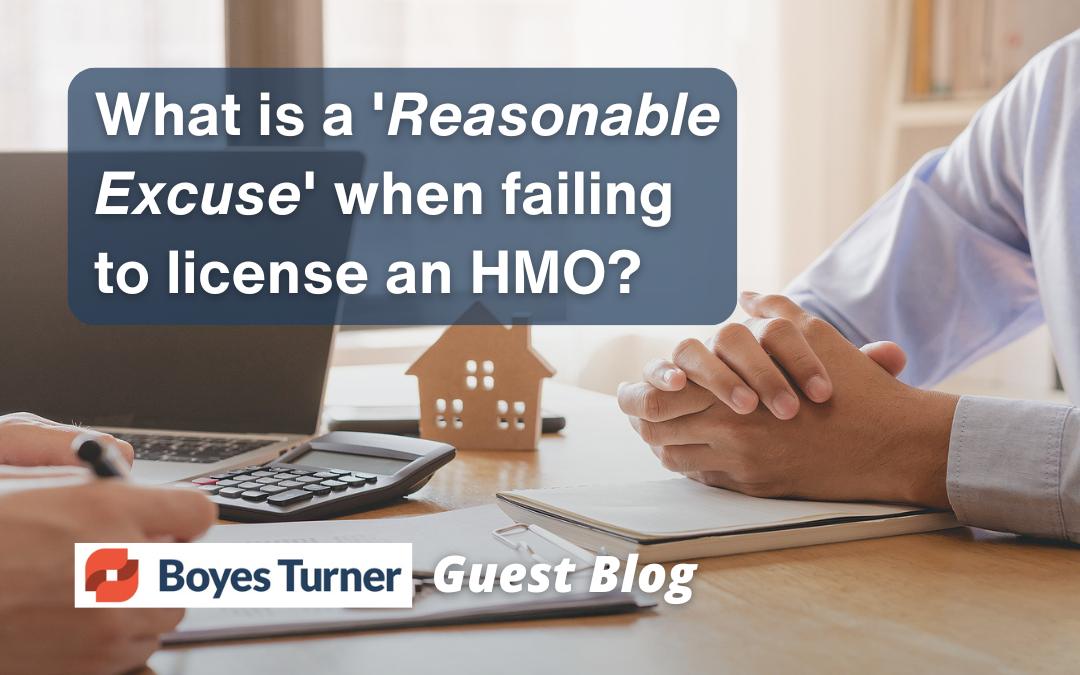What is a reasonable excuse for failing to license your HMO property?
Whenever a claim is made for failure to properly register a HMO (House in Multiple Occupation) (either mandatory or discretionary licensing) one of the more predictable responses/defences will be that the landlord or managing agent ‘did not know’, either about the need to license or that the current use of the property would necessitate licensing. This is normally given an equally predictable response, i.e. ‘it is your job to know’. This is not always the case though. ‘Reasonable Excuse’ is often cited as a defence to claims, whether this is a criminal prosecution or for instance a Rent Repayment Order claim.
(Selective Licensing and Rent Repayment Orders are issues that have been covered in previous blogs: > An Introduction to Rent Repayment Orders and > Selective Licensing: The Basics)
Without the context of what ‘Reasonable Excuse’ may encompass, it is little use as a defence. However, given the fact specific nature of many of these issues, having a rigid definition is equally problematic. This is where the case of Marigold and others v Wells offers a little more clarity.
Using a comparable situation regarding tax as discussed in Perrin v HMRC (2018), the First Tier Tribunal (FTT) used the same criteria and noted that:
‘When considering a ‘reasonable excuse’ defence, the FTT could usefully approach matters in the following way: First, establish what facts the taxpayer (claimant) asserted had given rise to a reasonable excuse. Second, decide which of those facts were proven. Third, decide whether, viewed objectively, those proven facts had amounted to an objectively reasonable excuse for the default and the time when that objectively reasonable excuse ceased. In doing so, it was to take into account the experience and other relevant attributes of the taxpayer and the situation in which the taxpayer found himself at the relevant time or times. It might assist the FTT, in that context, to ask itself the question ‘was what the taxpayer did (or omitted to do or believed) objectively reasonable for this taxpayer in those circumstances?’ (see [48] of the judgment).
‘Some requirements of the law were well-known, simple and straightforward, but others were much less so. It would be a matter of judgment for the FTT in each case whether it was objectively reasonable for the particular taxpayer, in the circumstances of the case, to have been ignorant of the requirement in question, and for how long’. (see [49] of the judgment)
Using these criteria allows the FTT a framework to follow, but discretion to interpret the facts on a case by case basis.
In this specific case, the Landlord tried to license the property at the beginning of the tenancy under the impression that this was needed, and the fee was paid. The Landlord was then informed that a licence was not required, the monies were returned, and the council indicated that they would keep the Landlord informed of any changes. The FTT found that it was reasonable to expect that the Landlord should continue to monitor any changes either in occupation at the property or change in scheme with the council to see if licensing later became necessary. As they did not do so, the property became a licensable HMO and so the defence of reasonable excuse was not available to save the Landlord.
It is clear that there is a high bar for reasonable excuse to be successful as a defence. It relies on the belief to not only be genuine and objectively reasonable (and not based on lack of knowledge) but, crucially also, continuing. A ‘once and for all’ belief, i.e. a belief at the beginning of the tenancy, does not exist and landlords are expected to keep themselves informed at all times.
This is another example of the need to tread carefully regarding HMO licensing, given the strict penalties and expectations on landlords and agents. Landlords should be vigilant and always kept informed of developments with the local authority and their property. If there is a change in circumstance, early advice should be obtained.
When giving comment and advice on a non-specific basis, Boyes Turner cannot assume legal responsibility for the accuracy of any particular statement. In the case of specific problems it is recommended that professional advice be sought.
About Boyes Turner
Boyes Turner are a regional UK law firm with an impressive international reach. The expertise of their teams is considerable, spanning the corporate world, technology and private clients. Richard Pulford is an Associate in the firm’s Property Disputes team with over 10 years of experience in property law. He advises on all elements of residential and commercial property matters. (rpulford@boyesturner.com)
* * *
Would you like to receive our monthly Newsletter?
Sign up for our monthly Newsletter for helpful articles and regular industry updates. We promise not to spam you with hundreds of emails and you can unsubscribe at any time.

